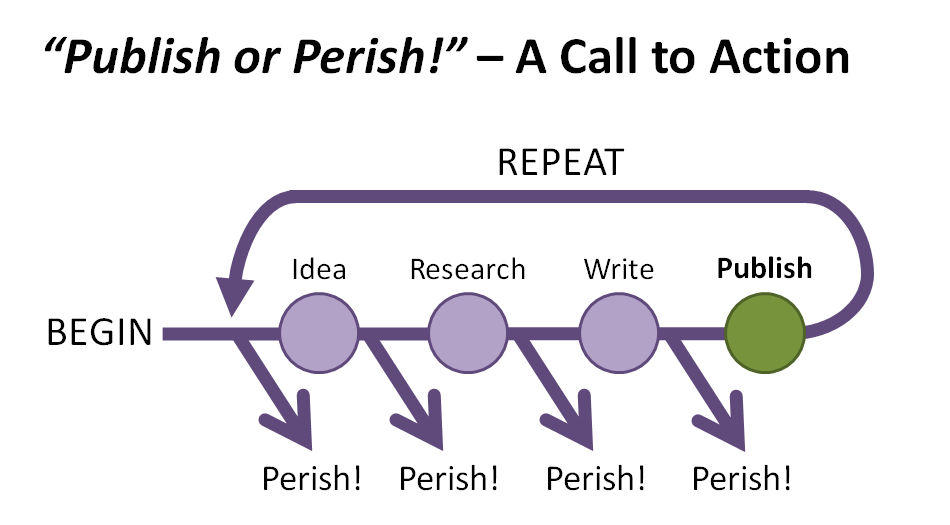
Publish, perish, or pretend: The dilemma facing universities and researchers.
Research fraud
Traditionally, a researcher at an academic institution has been faced with two options: a) publish or b) perish. Successful publications bring money, attention, and sometimes fame to scholars and their sponsoring institutions. Others…perish? Not literally, but they probably don’t stay researchers for long.
On top of that, research, particularly scientific research, is expensive. It takes a lot of money to gather subjects, get approvals, design an experiment, run it, confirm the results, and publish. An academic can fail at any leg in the journey.

Faced with these incentives, more than a few researchers have opted for a third option: c) pretend. This option is much easier: pretend that you have the data to publish. Hard to fail at any of the legs of the journey if you’re pretending, or faking, that you have the data to publish.
Of course, there are other problems. For one thing your data won’t be replicable. But that’s been a problem for years and there’s at least some consensus that some experiments are not replicable. As even the whistleblower in this case explained, sometimes “experiments produce a fluke.” The bigger risk is that everyone around you, who is also under the pressure to publish or perish, will notice that your results are a little too pristine, a little too perfect. And they may not like that you are publishing (fraudulently) while they are perishing (in real life).
And, there’s a real harm here. That pretend data and the experiments that they power are often used to get additional grants. And by grants, we’re talking about money. millions and millions of dollars. If this is healthcare research, then we’re talking about taxpayer money provided by the National Institutes of Health.
The scheme
Erin Potts-Kant, a research technician, worked in Duke’s physiology lab. She conducted experiments on mice. The whistleblower saw that Potts-Kant could come up with results much faster than he or other technicians, who, when they tried, often couldn’t duplicate her results. She later retracted her findings, but not before those results found their way into dozens of grant applications worth hundreds of millions of dollars. According to the lawsuit, Duke knew the research was fake but relied on it anyways when submitting grant applications.
The penalty
$112.5 million and structural changes at Duke. The United States was not impressed with Duke’s ability to police itself. In the past two decades, Duke has been home to a host of fake research.
Duke also agreed to implement a series of key steps to build on the university’s already wide-ranging efforts to improve the quality and integrity of research conducted on campus, including:
- The appointment of a new Advisory Panel on Research Integrity and Excellence. The advisory panel will provide recommendations to President Price and university leadership for improving the structure and function of research administration, with a focus on promoting research integrity;
- The establishment of a new, integrated leadership structure for research to provide clear and consistent policy guidance, oversight and accountability for all research at Duke University and Duke Health;
- A new initiative to promote values and a culture of excellence and accountability at Duke;
- The creation of an Executive Oversight Committee, chaired by Chancellor for Health Affairs A. Eugene Washington and including senior leadership and faculty, and a related Faculty Advisory Committee to oversee the ongoing implementation of Duke’s research excellence initiative.
The whistleblower
The whistleblower was a former lab technician. He couldn’t shake the feeling that Potts-Kant had falsified her data. After Potts-Kant was arrested for using her lab credit card to buy personal items, Duke conducted an internal investigation. The whistleblower shared his suspicions with them, but it seemed like they were getting swept under the rug.
The whistleblower reward
The whistleblower will receive $33,750,000 for following his intuition, reporting misconduct, and saving taxpayer money. Under the qui tam provision of the False Claims Act, a private party (also referred to as a whistleblower or relator) may file an action on behalf of the United States and receive a portion of the recovery, typically between 15-30%.
If you think you’ve observed fraud or misconduct, we can evaluate your options. Vivek Kothari is a former federal prosecutor who represents whistleblowers. For a free consultation, contact Vivek by email, phone, Signal, or fill out the contact form.
Image source: Averyaudio, CC BY-SA 4.0 <https://creativecommons.org/licenses/by-sa/4.0>, via Wikimedia Commons
